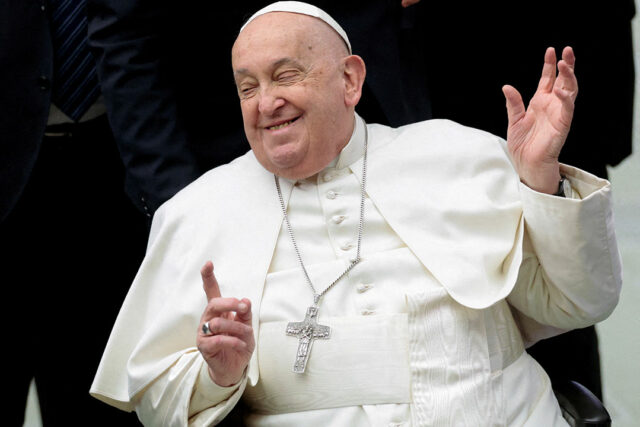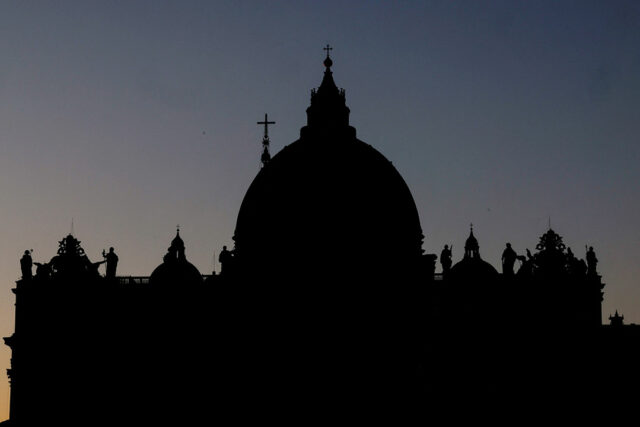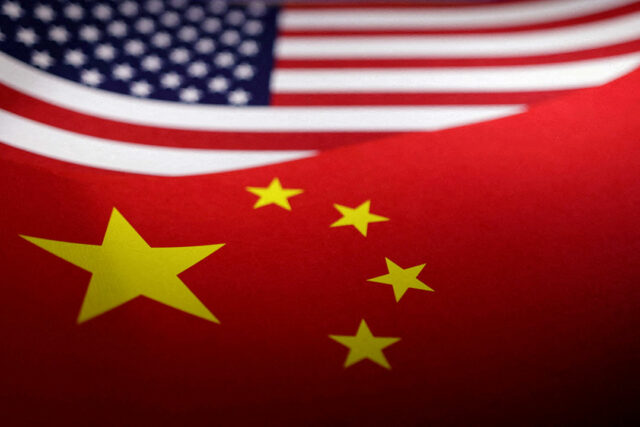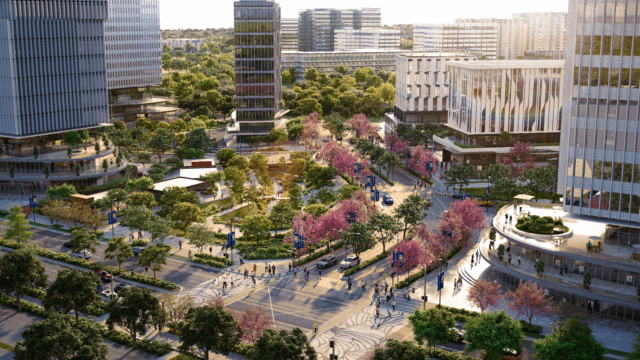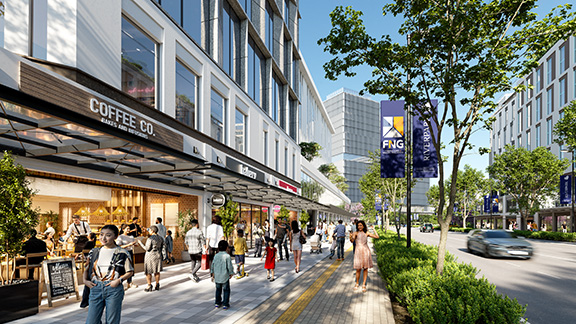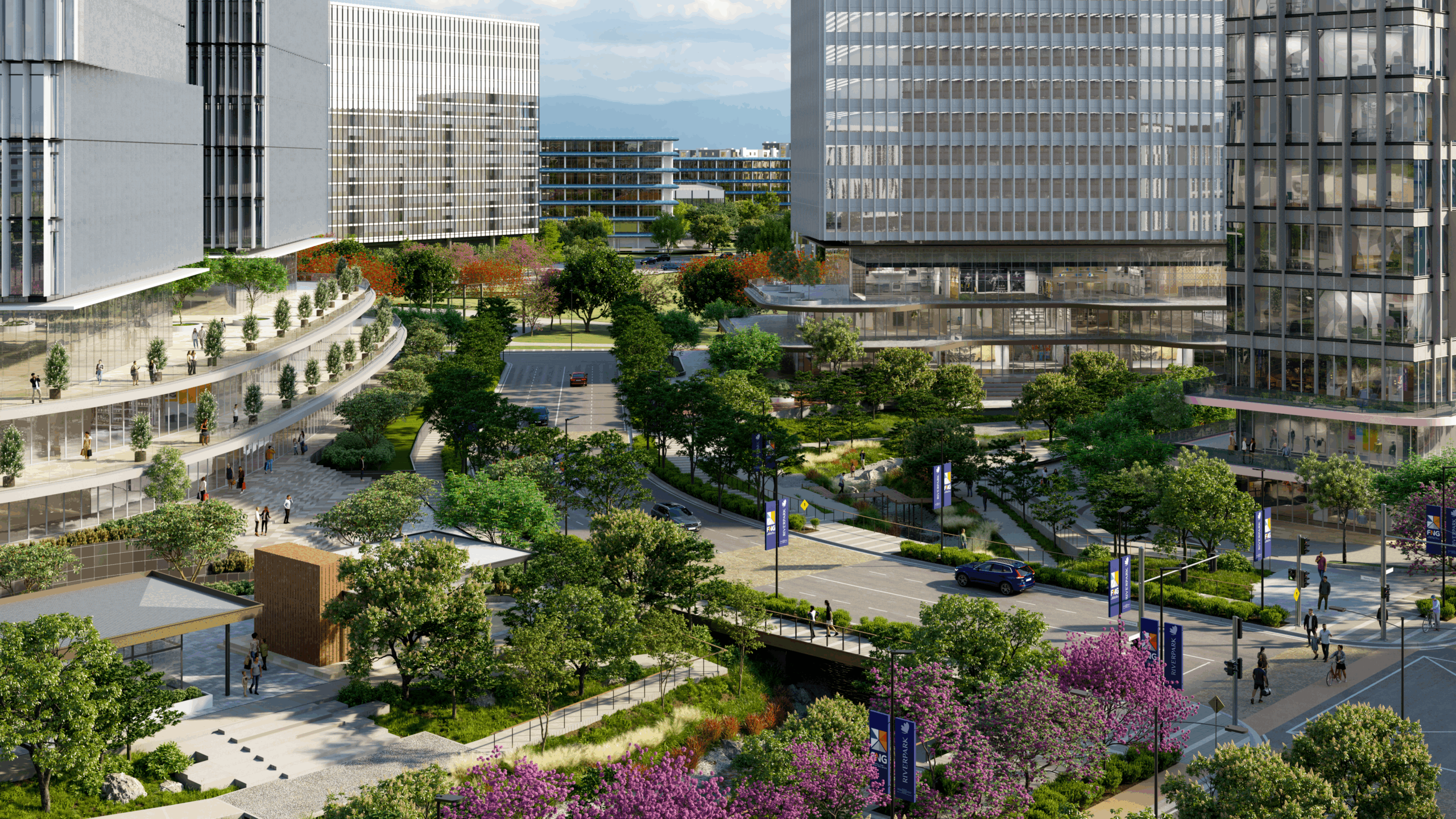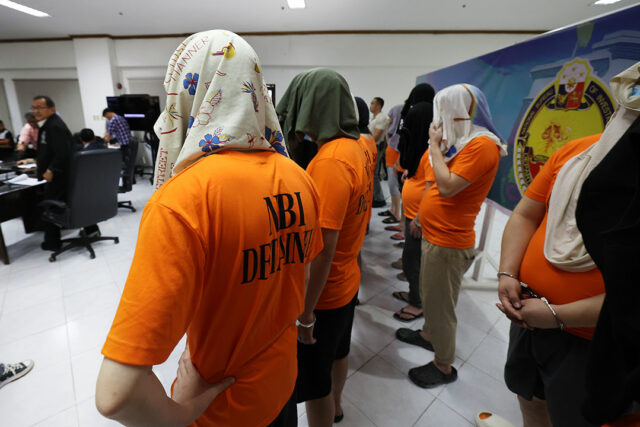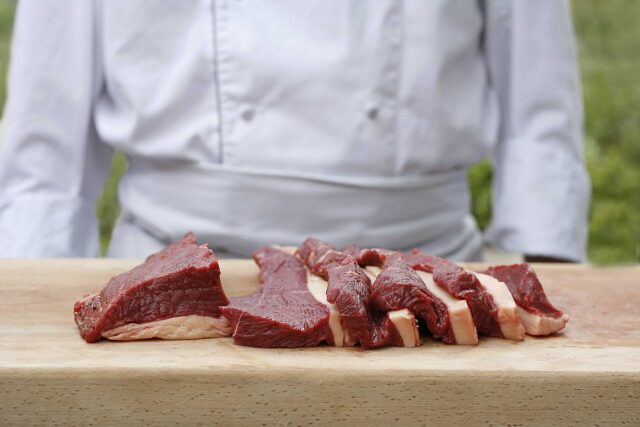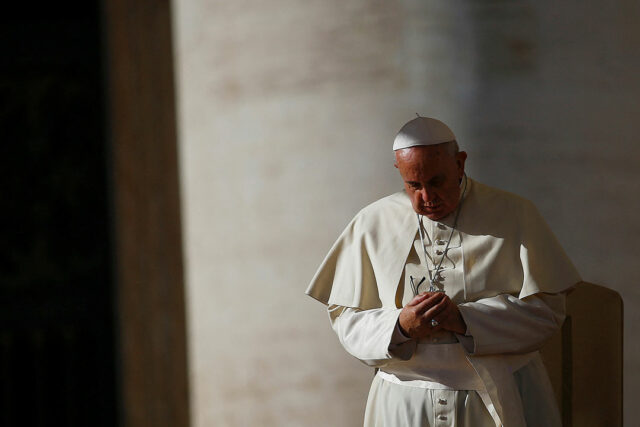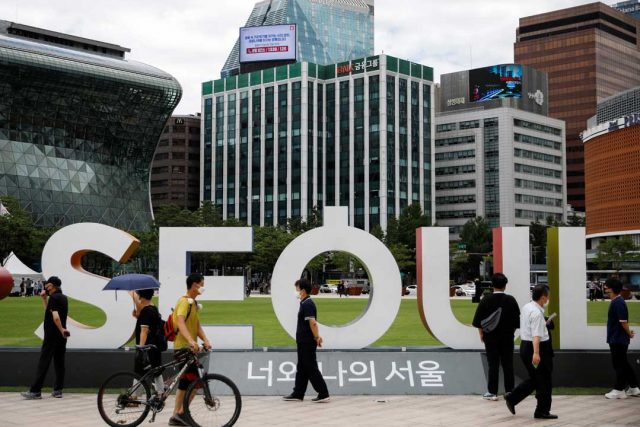VATICAN CITY — Pope Francis changed the face of the modern papacy more than any predecessor by shunning much of its pomp and privilege, but his attempts to make the Catholic Church more inclusive and less judgmental made him an enemy to conservatives nostalgic for a traditional past.
The Vatican said on Monday in a video statement that he had died.
Francis inherited a deeply divided Church after the resignation in 2013 of his predecessor, Benedict XVI. The conservative-progressive gap became a chasm after Francis, from Argentina, was elected the first non-European pope in 1,300 years.
The polarization was fiercest in the United States, where conservative Catholicism often blended with well-financed right-wing politics and media outlets.
For nearly a decade until Benedict’s death in 2022, there were two men wearing white in the Vatican, causing much confusion among the faithful and leading to calls for written norms on the role of retired popes.
The intensity of conservative animosity to the pope was laid bare in January 2023 when it emerged that the late Australian Cardinal George Pell, a towering figure in the conservative movement and a Benedict ally, was the author of an anonymous memo in 2022 that condemned Francis’ papacy as a “catastrophe.”
The memo amounted to a conservative manifesto of the qualities conservatives will want in the next pope.
Francis appointed nearly 80% of the cardinal electors who will choose the next pope, increasing, but not guaranteeing, the possibility that his successor will continue his progressive policies. Some Vatican experts have predicted a more moderate, less divisive successor.
Under his watch, an overhauled Vatican constitution allowed any baptized lay Catholic, including women, to head most departments in the Catholic Church’s central administration.
He put more women in senior Vatican roles than any previous pope but not as many as progressives wanted.
Francis was 76 when he was elected to the post and his health was generally good for most of his papacy. He recovered well from intestinal surgery in 2021 but a year later a nagging knee problem forced him to slow down. He was never keen on exercise and the restriction of a wheelchair and a cane led to a visible increase in his weight.
His inability to help bring an end to the war in Ukraine was a great disappointment. From the day of Russia’s invasion in February 2022, he made appeals for peace at nearly every public appearance, at least twice a week.
The conflict brought relations between the Vatican and the Russian Orthodox Church to a new low in 2022 when Francis said its Patriarch Kirill, who supported the conflict, should not act like “Putin’s Altar Boy.”
He made frequent appeals for the release of hostages taken by Hamas militants but increased criticism of Israel’s military campaign in Gaza ahead of the January 2025 ceasefire agreement in the Israel-Hamas war that erupted in October 2023.
FROM BUENOS AIRES TO THE VATICAN
Jorge Mario Bergoglio was born on Dec. 17, 1936 into a family of Italian immigrants who had settled in Buenos Aires.
He attended a technical high school and worked for a while as a chemical technician at a food laboratory. After he decided to become a priest, he studied at the diocesan seminary and in 1958 entered the Jesuit religious order.
At about that time, when he was 21, he caught pneumonia and had to have the top part of one lung removed because of cysts.
While still in the seminary, his vocation was thrown into crisis when he was “dazzled” by a young woman he met at a family wedding. But he stuck to his plans and after studies in Argentina, Spain and Chile, he was ordained as a Jesuit priest in 1969, rapidly rising to head the order in Argentina.
That coincided with the 1976-1983 military dictatorship, during which up to 30,000 suspected leftists were kidnapped and killed.
The Vatican has denied accusations by some critics in Argentina that Francis stayed silent during the human rights abuses or that he failed to protect two priests who challenged the dictatorship.
As archbishop of Buenos Aires from 2001-2013, he clashed frequently with the Argentine government, saying it needed to pay more attention to social needs.
A SIMPLE START
Francis endeared himself to millions with his simplicity when he spoke minutes after his election as pope on March 13, 2013.
“Brothers and sisters, good evening,” were his first words from the balcony of St. Peter’s Basilica, departing from the traditional salutation “Praised be Jesus Christ!”
The first pope from Latin America and the first Jesuit to hold the post, Francis was also the first in six centuries to take over the Church after the resignation of a pope.
He took the name Francis in honor of Francis of Assisi, the saint associated with peace, concern for the poor, and respect for the environment.
In that first appearance, the new pope shunned the crimson, fur-trimmed “mozzetta,” or cape, and also did not wear a gold cross but kept around his neck the same faded silver-plated one he used as archbishop of Buenos Aires.
Gone too were the plush red “shoes of the fisherman” used by his predecessors. He kept the same simple black shoes he always used and wore $20 plastic watches, giving some away so they could be auctioned off for charity.
In his first meeting with journalists three days later, Francis said: “How I would like a Church that is poor and for the poor.”
MODEST LIVING
Inside the tiny city-state, where some cardinals lived like princes in frescoed apartments, Francis renounced the spacious papal apartments in the Apostolic Palace and never moved out of the Vatican hotel where he and the other cardinals who entered the conclave of 2013 were billeted in simple rooms.
The Santa Marta residence, a modern building with a common dining room, became the nerve center of the more than 1.3 billion-member Roman Catholic Church.
“It (the decision to stay in Santa Marta) saved my life,” he told Reuters in an interview in 2018, explaining that apartments used by his predecessors were like a “funnel” isolating inhabitants.
The bulletproof papal limousine was dispatched to the Vatican Museums and Francis took to being driven around Rome in a blue Ford Focus with no security features.
His first trip outside Rome was to the tiny Italian island of Lampedusa to pay tribute to the thousands of migrants who had drowned in the Mediterranean while trying to reach Europe and a better life.
“In this globalized world we have fallen into the globalization of indifference. We have become used to the suffering of others. It doesn’t regard us. It doesn’t interest us. It’s not our business,” he said.
WORLDWIDE PRESTIGE
Francis enjoyed considerable prestige internationally, both for his calls for social justice as well as for risky political overtures.
He made more than 45 international trips including the first by any pope to Iraq, United Arab Emirates, Myanmar, North Macedonia, Bahrain and Mongolia.
In 2014, secret contacts mediated by the Vatican resulted in a rapprochement between the long-hostile United States and Cuba.
In 2018, he led the Vatican to a landmark deal on the appointment of bishops in China, which conservatives criticized as a sell-out by the Church to Beijing’s communist government.
Under his watch, the Vatican and the United Nations teamed up to hold international conferences on climate change and in June 2015 he issued an encyclical in which he demanded “action now” to save the planet.
In the 2018 interview with Reuters, he said then US President Donald J. Trump’s decision to pull out of the 2015 Paris climate agreement had pained him “because the future of humanity is at stake.” The pope and Trump were at odds over many issues, mostly immigration.
Throughout his pontificate, Francis spoke out for the rights of refugees and criticized countries that shunned migrants.
He visited the Greek island of Lesbos and brought a dozen refugees to Italy on his plane, and asked Church institutions to work to stop human trafficking and modern slavery.
He ordered his charity arm to help the homeless in the neighborhood around the Vatican, opening a shelter and a place for them to have baths and haircuts and see foot doctors. He gave the homeless a private tour of the Sistine Chapel.
During a trip to Sicily in 2018, he appealed to “brothers and sisters of the Mafia” to repent, saying the island needed “men and women of love, not men and women ‘of honour,’” using the term mobsters apply to themselves.
After a wave of Islamist militant attacks in France in 2015-2016, including the killing of an elderly priest who was saying Mass, the pope called on all religions to declare that killing in God’s name was “Satanic.”
THE FRANCIS EFFECT
Although his style was not welcomed by all members of the Church hierarchy, some of whom had become accustomed to the luxury of stately mansions and palaces, the “Francis Effect” began trickling down the ranks.
His desire to connect extended to telephone calls. He became known as the “cold call pope” for phoning people unannounced, usually after they had written to him about a problem or he had heard that they had been touched by tragedy.
“This is Francis,” were the words incredulous people heard on the other end of the line. “Really, this is Pope Francis.”
He also sought more openness with journalists. On one freewheeling encounter on the way back from Brazil in 2013, the pope, responding to a question about gay priests, offered an answer that made world headlines.
“If a person is gay and seeks God and has good will, who am I to judge him?”
The comment did not mark a change in Church teaching that calls homosexual acts sinful, but it became emblematic of his preference for mercy over condemnation.
A CHURCH FOR THE POOR
From the start, Francis sent clear signals to priests and bishops about the type of Church he wanted.
He said there was no room for “careerists or social climbers” among the clergy, told cardinals they should not live “like princes,” and said the Church should not “dissect theology” in lush salons while there were poor people around the corner.
“If investments in banks fall, it is a tragedy and people say ‘what are we going to do?’ but if people die of hunger, have nothing to eat or suffer from poor health, that’s nothing. This is our crisis today. A Church that is poor and for the poor has to fight this mentality,” he said early in his papacy.
Even as pope, Francis remained an ardent fan of the Buenos Aires San Lorenzo soccer team.
In the 2018 interview with Reuters, Francis said he did not miss Argentina. “I only miss the street. I am a ‘callejero’ (a man of the streets). I really would like to be able to do that again, but I can’t now.” — Reuters




